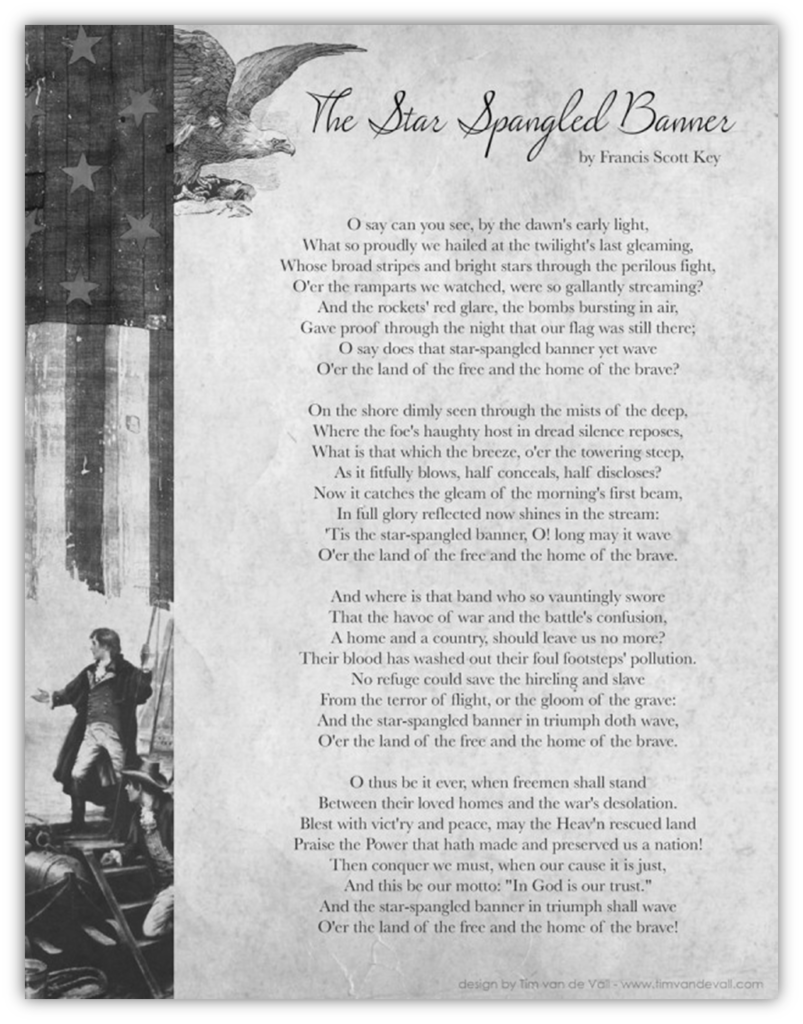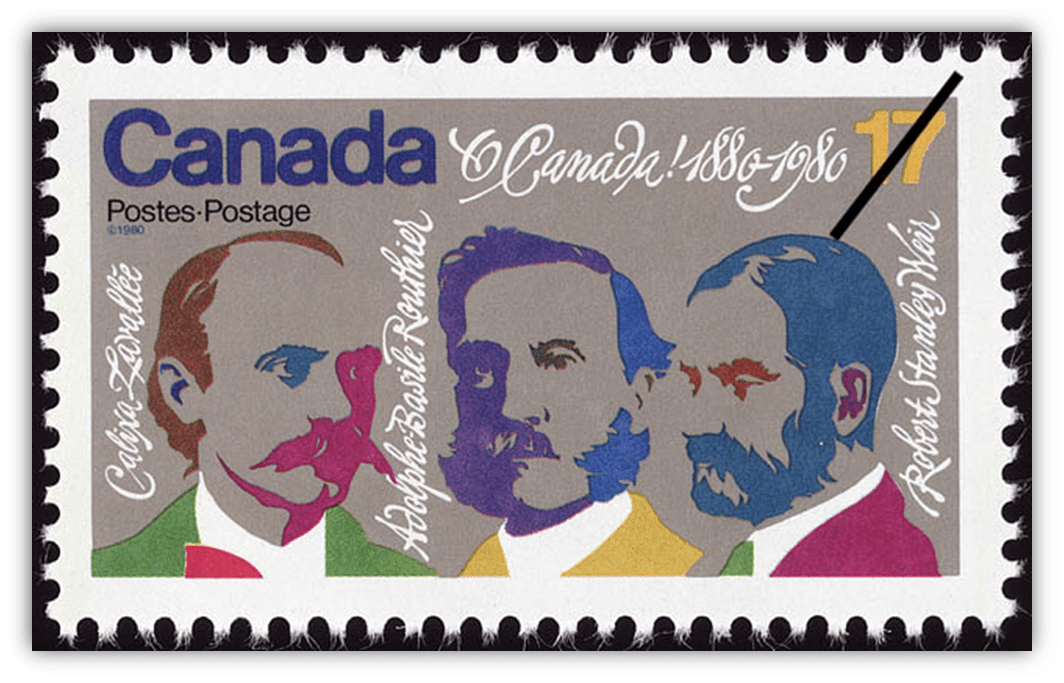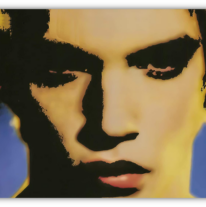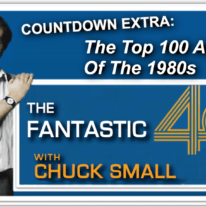We all know our own national anthem.
We know the melody and the words. Well… maybe we know the first verse.

My country’s anthem,“The Star Spangled Banner,” has four verses, but few people know the last three. Some of us even think it ends with the words “Play ball!”
When we think about national anthems, if we think about them at all, we often assume that they’ve been their country’s anthem forever.
In reality: Eleven of the 196 national anthems were adopted within the past 20 years.
The oldest anthem belongs to either The Netherlands or Japan, depending on how you count it.

“Wilhelmus,” the Dutch anthem, was written in the 1570s but it wasn’t officially adopted until 1932.
We’re not sure when the lyrics to “Kimigayo” were written but know that they were first published in 905. However, they weren’t set to music until 1880.

It served as Japan’s de facto anthem but wasn’t adopted by law until 1990.
Canada’s anthem, “O Canada,” also seems like it has been around forever.
And I was surprised to learn it wasn’t made official until 1980, so I looked into it. The decision was controversial, and is part of a much bigger story.
We have to remember that people have inhabited North America for thousands of years.

That seems obvious, but history classes tend to leave that part out. Not necessarily due to racism, though that could be part of it.
But because the indigenous people didn’t leave us a written record. We have stories and songs from their oral tradition, but some historians don’t consider them reliable.
So the history we use begins when Europeans came to the continent. What’s now Canada was colonized mostly by the French and English.
And, to put it lightly: the two didn’t get along.

The Seven Years War, or the French and Indian War as we Americans called it, ended in 1763 with France ceding Canada to the British. But that didn’t mean people immediately liked each other. Intermittent skirmishes continued for generations.
Things are much better today. But there’s still some tension between French-speaking Québec and all the other provinces. The French worry that their culture will be stifled.
Québec has always had a separatist faction, and the movement’s popularity last peaked in the late 1970s. It’s hard to say if separatists will gain wide support again.

After all, twenty years ago, who thought Britain would leave the EU?
So: the differences of opinions between Francophones and Anglophones go way back to before Canada’s founding.
And it can still be seen in the anthem they eventually adopted.
The French and English lyrics aren’t even a translation from one to the other. In fact, the only thing they have in common are the words, “O Canada.”

Canada became Canada on July 1, 1867, when the various provinces confederated. Things like anthems and flags and other non-essentials took a while to be selected.
The Québécois brought a holiday with them from France:
The “Fête de la Saint-Jean” (The Feast of St John) happens every June 24th and is a Catholic festivity traditionally celebrated with bonfires reminiscent of pagan midsummer rituals. It’s also celebrated in one form or another in the Scandinavian and Baltic countries.
In 1834, newspaperman Ludger Duvernay attended a St. Patrick’s Day celebration with Canadians of Irish heritage, and thought a similar holiday for French Canadians would be a good idea.

He started the Association Saint-Jean Baptiste, and set out to make Saint-Jean-Baptiste Day a yearly celebration. The bonfires continued as part of the festivities, and parades were added and became more elaborate over the years.
In Québec, Saint-Jean-Baptiste Day is part of the culture that they worry will be stifled.

It’s a big deal.
It’s political.
In 1880, the Association held its first national conference. They commissioned a “chant national,” a national anthem – but not for Canada. It was to be the national anthem of Québec. Over a hundred years after the war, the old animosities that hadn’t gone away.
There were already a couple of English language patriotic songs.

Both “God Save the King” and “The Maple Leaf Forever” were very popular.
A few attempts at a French language anthem were made, but “Ô Canada! mon pays! mes amours!,” “Sol canadien, terre chérie,” and “Le Drapeau de Carillon” didn’t really catch on.
Accounts vary about whether Adolphe-Basile Routhier had already written the “O Canada” lyrics – or if the lieutenant-governor of Québec, Théodore Robitaille, asked him to do so. It’s also unclear whether they held a competition for the composer, or if Robitaille asked Calixa Lavallée outright.
All we know for sure is that Routhier wrote the words and Lavallée wrote the music.

Routhier was a judge and author, and perhaps Québec’s best known writer of the time. Likewise, Lavallée was its top composer.
It’s good that they worked separately, because the two men were nothing alike.

Lavallée was liberal and wrote satirical musicals about politics. His music was known across the country and into the States and Europe.
We’ve mostly forgotten Canada’s contributions to the American Civil War, but many Canadians supported the Union and Lavallée fought at Antietam, the war’s bloodiest battle.
Routhier was deeply religious and conservative.

He even declared, while sitting on the Supreme Court, that it was OK for preachers to tell their congregations that they’d go to hell if they didn’t vote conservative.
So it’s no surprise that his French lyrics use phrases like:

He didn’t fight in a battle like Lavallée had. But he believed in Christian soldiers marching as to war.
Though Lavallée was an accomplished composer, he borrowed melodic phrases for the anthem.
Whether he plagiarized or paid homage to them depends on your point of view. The melody for the opening “O Canada” line is directly lifted from Mozart’s “Marsch der Priester” from The Magic Flute, which was very popular at the time. It was also famously critical of organized religion, so this could have been a subtle dig at Routhier.
A later melody comes from Arban’s “Voix tu la neige qui brille” (roughly, “The Beautiful Snow.”)
“O Canada” was a hit. Over time, it gained popularity and began to be sung at various national and public events. Various English lyrics were written.

And in 1908, Robert Stanley Weir wrote a bilingual version. This boosted the song’s acceptance in both English and French-speaking communities.
It wasn’t until the 1960s that Parliament began discussing adopting a national anthem.
“O Canada” was the front-runner due to its popularity and historical significance. Even so, no official action was taken.
During that 80 year interim, tensions between the French and English grew worse. The separatist movement gained steam. There were protests, street fights, and bombings.

1968 was an election year, and Pierre Elliott Trudeau was running for Prime Minister.
He attended the Saint-Jean-Baptiste Day parade in Montreal. Trudeau was French but believed in an united country, something the separatists couldn’t accept. They called for Trudeau to be hanged. Keep in mind that there were several political assassinations south of the border that year. The threats were real.
Trudeau went to the parade anyway and sat with other officials on a viewing stand.

As protesters threw rocks and many of the others scurried to safety, Trudeau remained in his seat, refusing to run from the mob.
The parade disintegrated into a riot with hundreds of arrests, but Trudeau’s steadfastness helped him win the votes of many English-speaking Canadians who had previously not trusted him.
He was elected Prime Minister a few days later.
On the night of the riot, two separatists met in the back of a police van.

They formed the Front de libération du Québec, better known as FLQ, and began a terror campaign.
They kidnapped the British Trade Commissioner, murdered the Québec Labour Minister, and bombed the Montreal Stock Exchange.
Trudeau’s response was to essentially declare martial law through the War Measures Act.

The Act had not been used before and hasn’t been since. 453 people were detained. Only 18 were ever charged.
The rest were released, but it gave police enough time and information to locate the British Trade Commissioner and negotiate his release. The FLQ dwindled away as one member after another disavowed it.
That didn’t end the separatist movement. Québec’s Premiere, René Lévesque, wanted a province-wide referendum about leaving Canada, but knew he couldn’t do it while Trudeau was in office. He waited until Trudeau lost the 1979 election to Joe Clark, who had promised to stay out of the matter.

The referendum was set to be held in May of 1980. However, Trudeau was elected Prime Minister again in April.
He spoke passionately about keeping Canada together. He pointed out that there was nothing in the referendum that said the rest of the country had to accept the outcome and had no details of how Québec/Canada relations would work.
He also responded to Lévesque’s gibe that Trudeau wasn’t really Québécois because his mother’s maiden name was Elliot. Trudeau, whose full name is Joseph Philippe Pierre Yves Elliott Trudeau, made a speech saying his name was part French and part English, just like Canada. He then listed all the Parti Québécois members with non-French names. Lévesque’s responses were weak.

Roughly 60% of Québec’s voters chose to stay. Lévesque said that he took the loss to mean that separatists would have to wait for another opportunity, but they haven’t tried again since.
Trudeau’s administration worked on multiple fronts to hold together a splintered country.
One way was to declare a national anthem, and that happened two months later on the week of Saint-Jean-Baptiste Day.

On July 1st, Canada Day, “O Canada,” which had been the anthem of Québec’s holiday, was performed as the country’s national anthem for the first time.
Even so, the French and English lyrics remain very different. The French version mentions swords, crosses, and a halo of fire. The English version talks about true patriot love, glowing hearts, and the True North, strong and free.
There’s an official bilingual version that switches back and forth between English and French, which is a little awkward – but a good compromise.
And compromise is how you hold a country together.
Trudeau’s son Justin is now in his third term as Prime Minister.
Let the author know that you liked their article with a “Green Thumb” Upvote!









Interesting stuff. Yes, the Franco/Anglo divide can be really contentious in Quebec. It’s one of Canada’s main culture war issues.
As someone who mostly spent his time in Montreal, I found the hardline Francophone people to be damn obnoxious. Shaming people on the street for speaking in a language other than French, or filming and reporting shop keepers who say “Bonjour, hello” as customers come in, rather than all French. People from France are much more forgiving than that!
Most people in Montreal proper are bilingual, and many immigrants are trilingual. People are happy to use whatever language works for others. It’s a very chill city. Except for those hardline Francophones…who mostly come from elsewhere in Quebec.
At the same time, I do appreciate some of the aspects of Quebec’s high standards for cultural preservation. It does serve to make the culture more cohesive, even in a multicultural cosmopolitan hub like Montreal. It helps them enforce standards of food as well as language (which I really appreciate). Despite my having been functionally walled off from staying in Montreal past my contract due to the fact that I didn’t speak French, I can still admire some of the benefits that such preservation affords. And certainly can understand how defensive people sometimes must be to prevent erasure.
But…obviously, such passion can easily be taken too far, into its own sort of radical zealotry. To those people: prends ton gaz égal. Relaxe tabarnak!
Google Translate says that means, “take your equal gas. Relax tabarnak!” I don’t speak French either, but I’m pretty sure that isn’t right.
I think hardliners of any stripe are party poopers. It doesn’t matter what they’re hardline about, they’ve willing given up thinking about it in favor of all-or-nothing offensiveness. They manage to be annoying and boring at the same time.
Man, even Google translate gives the Quebecois no love…
(it’s like saying “Take a chill pill. F—ing relax!”)
I should’ve known. My grandmother used to say, “Oh, tabarnak!” all the time. It means, “Oh, tabernacle,” which is an odd sort of curse in English, but a lot of French swearing is religious rather than about the body as in English. “Sacre bleu” and “Mon dieu” are common examples.
Why that is, I don’t know, but it could be an entire new TNOCS article.
Nice. Tabarnak is my favorite of their curses. And yeah, Quebecois swearing is almost exclusively religious in nature, even more so than swearing from France (which has plenty of merde to it).
I know a little bit of the history involved, but I agree it would make for a great V-Dog article! 😉
ME TOO! I hate hardliners! As a member of the Anti-Hardliner Coalition, we try to pass legislation punishing hardliners! DEATH TO HARDLINERS!!!1!!
Maybe we can burn them….
YEAH!
Where can I sign up for your newsletter?
Your post got me curious about Denis Villenueve. He’s French-Canadian. I can’t find Quebec’s box office numbers for Dune. Villenueve made the transition to Hollywood after Incendines was a Best Foreign Film nominee in 2010. Villenueve’s Dune was pretty slow-moving for a Hollywood blockbuster, so maybe the French-Canadians liked it. I kinda missed the camp of David Lynch’s version. It looks great on Arrow Blu-Ray.
The new series needs more…spice.
This is a fun little article! (Should it be subtitled “What makes the Canadian National Anthem the Canadian National Anthem?”) Lots of history here that I didn’t know. I’m glad the different Canadians are getting along a little better now.
There actually was a second referendum in 1995 for Quebec to secede from Canada, and it barely lost. 49% voted to secede. I remember following the story and the voting being really close.
I have always felt O Canada was a way better anthem than ours. One story- awhile back, I was at a Blackhawks home game against the Maple Leafs. It was already clear by the jerseys, blue wigs and face paint that our section had been commandeered by rabid Leafs fans, but when O Canada played and the robust singing commenced all around us, I felt a sense of doom. A lone Hawks fan near us tried trash talking them, but he was so drunk, it was incoherent. For their part, they didn’t cause any trouble at all and were just there to cheer on their team.
This was a fun topic. You mentioned the multiple verses of The Star Spangled Banner. I remember a prank on the Jamie Kennedy Experiment where he was disguised as the anthem singer for a minor league baseball game and he sang all the verses. People didn’t know it was a prank until the end, and they were losing their minds.
You’re absolutely right about 1995. I’ll fix it in the movie version but I should have caught that. Good call.
“O Canada” is indeed a better song, if only because people can usually hit all the notes. My voice always gives out on “and the rockets’ red glare.”
I do like the “Star Spangled Banner”, but performers need to keep the tempo relatively fast, and melisma is discouraged. It’s such a chore to sit through a rendition that is half the tempo it ought to be.
Carl Lewis has entered the chat…
“You’re welcome, Canada.” — Wolfgang Amadeus Mozart
One of my internet white whales would be the finding video of a very young girl singing O Canada.
This was during the 70s or 80s, and I saw it in real time. I think that the event was the baseball All-Star game, and it was in Montreal or Toronto.
The crowd politely listened as she wrapped up the first verse, and absolutely erupted when she sang the second verse and bridge in flawless Quebequois-inflected French. IIRC, she finished the whole thing in a mashup of the two languages.
It was completely unexpected and a complete delight. Reward for the lost footage.
Did a bit of digging. The MLB All-Star game was played once in the 80s in Montreal, the first time the game was hosted outside the U.S. The singer for both anthems was an opera dude. The next time it was played in Canada was in Toronto in 1991, and Alannah Myles (former subject of Tom’s column) sang O Canada. Those are the only two times it has been played in Canada. I’m thinking your white whale happened at a different sporting event.
unless she sang it somewhere else during the game, but I’m not sure why they would repeat it.
Maybe a hockey all-star game? That makes more sense.
The young girl was African American from the states.
Not having any luck yet.
Things I didn’t know I needed, the history of the Canadian national anthem. So much fascinating backstory.
I like that ‘O Canada’ as a phrase can be taken as a statement of both passion and despair for the nation.
I’ve been to Canada a couple times and would love to go back and explore more. Visited Montreal on one of those trips and found it such a weird mix of French and Anglo culture that took us a few days to get our heads round. French language, the Queen on the currency, British soap operas on CBC and the influences of the American neighbours. I found the people generally welcoming, whereas in actual France have had experiences ranging from friendly through to one particularly vile village where they ripped us off in the local bar and basically ran us out of town making it very clear our prescence was not wanted.
Quebec City is even more French and feels more like Europe than North America. Fascinating place. I love both those cities but have been there in over 20 years. Time to go back.
I’ve heard that Quebec City is the most European feeling city in North America. I’ve heard that San Francisco is the most European feeling city in the US.
I’d say it’s Boston for the US. It’s 200 years older and has a premodern street pattern in multiple areas. There are a few streets where cars can’t go because they’re too narrow. San Francisco is a bunch of grid neighborhoods built after railroads were invented.
But even then, we’re being biased in terms of what we consider “European” in a city. We’re talking about Amsterdam or Paris here, not Moscow or Bucharest. But that’s Europe too.
Fun fact. If you want to actually visit French territory while in Canada, you can go to Saint Pierre and Miquelon, on an archipelago near Newfoundland. Its inhabitants are French citizens, but it’s self-governed. I have not been there, but I’d like to someday.
It’s on my list, too!
There was this one time in the NHL playoffs when there was a US team playing at a Canadian team’s home rink, so they sang both national anthems. Except the singer’s mic broke, so then the crowd sang the rest of the “Star-Spangled Banner”, which was the most Canadian thing ever and there’s no way it would’ve happened if the countries were reversed. Anyway, that’s why I took it upon myself to learn (the first English verse of) “O Canada”. Would’ve come in handy a couple years later when I had a crush on a Canadian girl but high-school me wasn’t great at thinking things through like that.